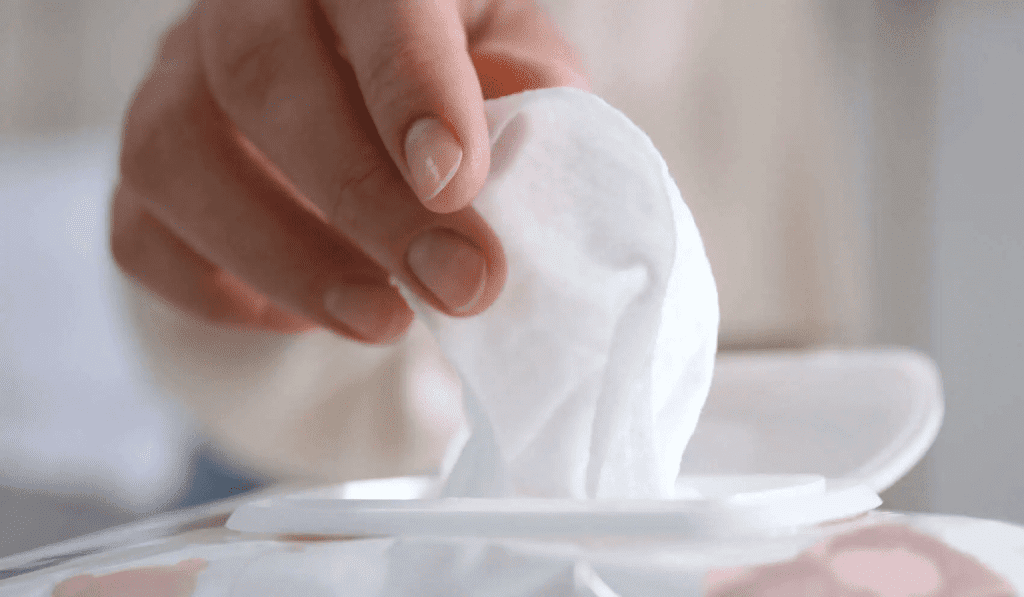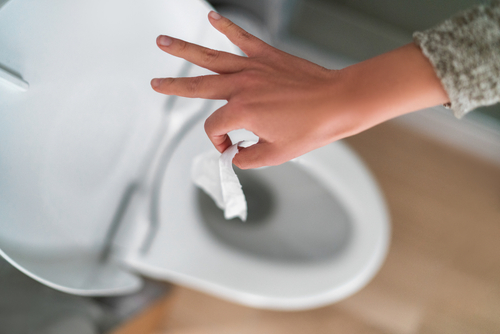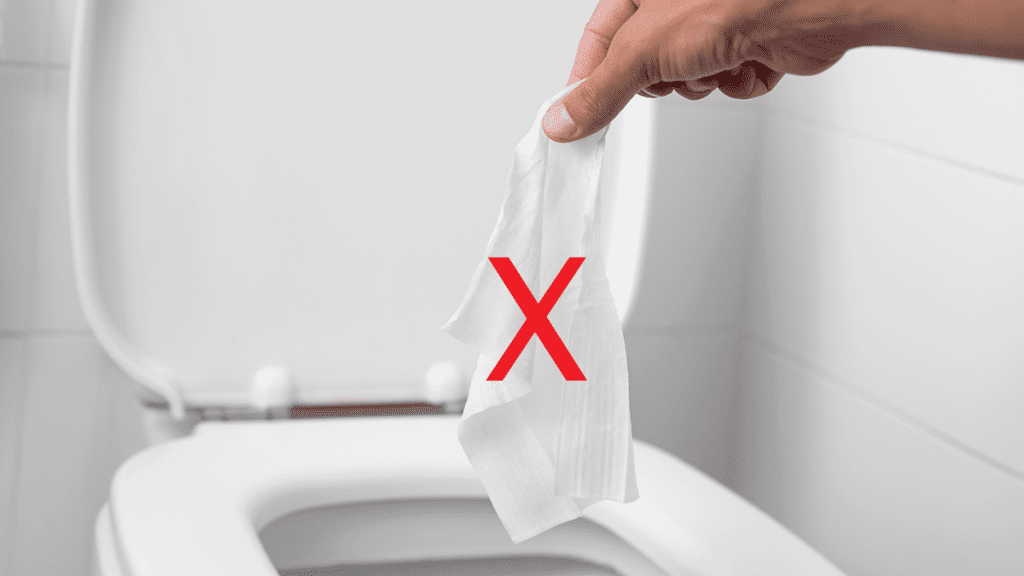In many households, baby wipes have become a convenient go-to for cleaning up messes and maintaining hygiene. However, a common debate arises when it comes to their disposal. Should they be flushed down the toilet? While some, like my mother-in-law, see no harm in it, the reality is far more complex. Let’s explore why flushing baby wipes can lead to serious consequences and how to handle this sensitive topic within your family.

The Truth About “Flushable” Baby Wipes
You’ve probably seen baby wipes marketed as “flushable,” but don’t let that label fool you. Unlike toilet paper, which is designed to disintegrate rapidly in water, most baby wipes are made from synthetic fibers like polyester. These materials are durable and do not break down easily in water, even when labeled as flushable.
Flushing these wipes can lead to a host of plumbing and environmental issues, making it crucial to understand their composition. While they may disappear from sight after flushing, the problems they cause are anything but out of mind.
The Environmental Cost of Flushing Wipes
Flushing baby wipes has a far-reaching environmental impact. Once flushed, these wipes travel through sewage systems, where they often clog pipes or reach treatment plants unequipped to handle them. Worse, many wipes end up in natural water bodies, contributing to pollution and harming marine ecosystems.
Over time, wipes break down into microplastics, which are particularly harmful to aquatic life. These tiny particles can be ingested by fish and other animals, eventually entering the food chain. By avoiding flushing, we take a small but significant step toward reducing environmental harm.
The Plumbing Nightmare: Clogs and Repairs
If you’ve ever dealt with a clogged toilet or backed-up plumbing, you know how inconvenient and costly it can be. Baby wipes are a leading cause of blockages, both in household pipes and municipal sewage systems. Unlike toilet paper, wipes don’t dissolve. Instead, they accumulate, creating stubborn clogs that require professional intervention.
Sewage backups caused by wipes can lead to unsanitary conditions, unpleasant odors, and expensive repair bills. The risks extend beyond your home—municipal sewage systems are frequently overwhelmed by the accumulation of non-flushable items like wipes, leading to widespread disruptions and higher maintenance costs for everyone.

How to Discuss the Issue with Family
Bringing up this topic with family, especially someone like your mother-in-law, can feel tricky. After all, no one wants to come across as critical or confrontational. The key is to approach the conversation with respect and understanding.
Start by sharing facts about the potential plumbing and environmental issues caused by flushing wipes. Frame the discussion around practical concerns rather than personal preferences. For example, you might say, “I’ve been reading about how flushing wipes can damage plumbing and harm the environment. Maybe we could look into other options together?”
Offering alternative solutions, like a designated bin for wipes, can help make the transition easier. The goal is to foster collaboration and understanding rather than creating tension.
Eco-Friendly Alternatives for Baby Wipe Disposal
If flushing wipes isn’t an option, what’s the best way to dispose of them? Fortunately, there are several alternatives:
- Dispose in the Trash: The simplest solution is to toss used wipes into a trash bin. To make this more convenient, consider keeping a small, covered bin in the bathroom.
- Use Biodegradable Wipes: Many brands now offer biodegradable or compostable wipes, which break down more easily in landfills compared to traditional wipes.
- Cloth Wipes: For a reusable and eco-friendly option, try cloth wipes that can be washed and reused multiple times.
- Educate Guests: Place a sign near the toilet as a gentle reminder for family and visitors not to flush wipes.
These alternatives not only protect your plumbing but also reduce your household’s environmental footprint.

The Importance of Waste Disposal Education
Proper waste disposal is everyone’s responsibility, but not everyone understands its importance. By educating family members about the dangers of flushing baby wipes, you can help prevent future problems.
Consider sharing articles, videos, or community resources that highlight the impact of improper waste disposal. Many municipalities offer educational materials about what can and cannot be flushed, making it easier to explain the issue.
Building awareness at home can also extend to the broader community. Participating in local clean-up efforts or advocating for better waste disposal policies are great ways to make a positive impact.
What About Flushable Wipes? Are They Safe?
Even “flushable” wipes are problematic. While these products are marketed as safe for toilets, studies have shown they don’t break down as quickly as toilet paper. They may still contribute to clogs and environmental pollution.
If you do choose to use flushable wipes, be cautious. Avoid flushing large quantities at once, and always check with your local wastewater treatment guidelines to ensure they can handle these products.
Finding Common Ground with Your Mother-in-Law
Family dynamics can make discussions like this feel daunting, but finding common ground is possible. Focus on shared values, such as wanting to avoid costly plumbing issues or contributing to environmental harm.
Suggest small changes that don’t disrupt her routine too much, like using a covered bin for wipes or switching to biodegradable options. A collaborative approach shows that you respect her perspective while encouraging a more sustainable practice.
Conclusion: A Small Change with Big Benefits
The decision to stop flushing baby wipes might seem minor, but it has a significant impact on both your plumbing and the environment. By addressing the issue thoughtfully and providing practical alternatives, you can protect your home from costly repairs and contribute to a healthier planet.
Ultimately, the key is fostering open communication and collaboration. Whether it’s with your mother-in-law or other family members, working together to adopt better disposal habits benefits everyone. Let’s leave clogged pipes and polluted waterways behind—one wipe at a time.


